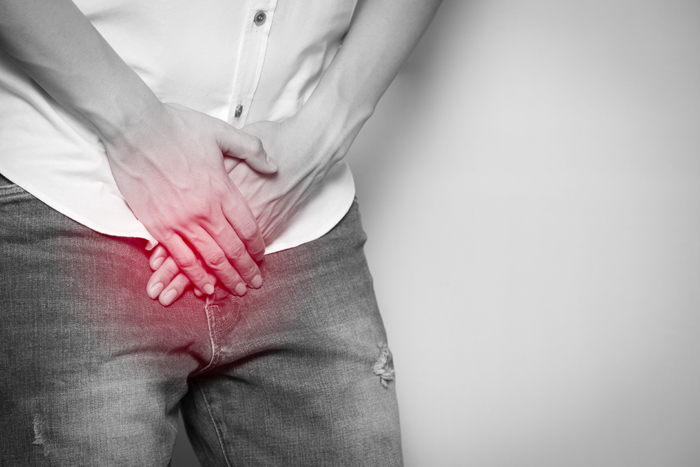Urine Incontinence Treatment & Diagnostics in Chunni Ganj, Kanpur
Urine Incontinence
Urine incontinence is a common problem when a person does not have control over the bladder. Either urine starts leaking during coughing or sneezing or sometimes there is a sudden urge and a person is unable to reach the toilet in time.
What Is Urine Incontinence?
It is a condition when a person cannot control his urge to pass urine. He may have to quickly reach the toilet and sometimes he may fail to reach it on time. In some cases, urine keeps leaking continuously or during sneezing and laughing.

What Are The Symptoms Of Urine Incontinence?
The most important is a minor or moderate amount of urine leak occasionally or more frequently. Other symptoms include the following:
- Leaking of urine during coughing, laughing, sneezing, or lifting
- There is a sudden urge to pass urine. Sometimes, there is involuntary urination due to failure to reach the toilet on time
- There is an urge to urinate often mostly at night. It may occur due to diabetes, infection, or neurological disorder
- There is continuous dribbling of urine. It happens when the bladder does not empty properly
When To Meet A Doctor at Apollo Spectra, Kanpur?
People feel uncomfortable discussing the problem of urine incontinence with the doctor. But, if urine incontinence is affecting your daily living activities, you should meet a doctor. You should seek a consultation as soon as possible if you experience the following:
- You have to limit your social interactions and restrict your daily activities
- If you are also suffering from other medical health issues
- If you are old because it may increase the risk of getting hurt due to a fall while rushing to the toilet
Request an appointment at Apollo Spectra Hospitals, Kanpur
Call 1860-500-2244 to book an appointment
What Are The Causes Of Urine Incontinence?
Many reasons are responsible for causing urine incontinence. Common causes of urinary incontinence include the following:
- Excessive alcohol drinking
- Drinking too many caffeinated drinks
- Drinking carbonated drinks
- Eating chocolate
- Eating spicy food, high sugar products, and citrus fruits
- Taking blood pressure medications, sedatives, and muscle relaxants
- Recurrent infection of the urinary tract
- People suffering from chronic constipation
- Increased pressure from the uterus during pregnancy
- Age-related weakness of bladder muscles
- After childbirth due to weakness of muscles and damage to the bladder nerves
- Taking hormonal therapy during menopause
- Prostate gland enlargement in older men
- Obstruction to the flow of urine due to a tumour or urinary stone
What Are The Risk Factors For Urine Incontinence?
Risk factors for urinary incontinence include the following:
- Women are more to suffer than men. Pregnancy, childbirth, and hormonal imbalance increase the risk of urine incontinence in women.
- Age is another risk factor that increases the risk of urine incontinence because with increasing age people lose the strength of bladder muscles and control over the bladder.
- Obesity is another risk factor. Extra weight puts pressure on the bladder muscles and results in leaking of urine
- Smoking tobacco increases the risk of urine incontinence
- If your family member suffers from the problem of urine incontinence, you also tend to suffer from the same problem
- Diseases such as diabetes also put you at risk of developing urine incontinence.
What Treatment Is Available For Urine Incontinence at Apollo Spectra, Kanpur?
Treatment depends on many factors. It depends on the symptoms, age, general health, and mental state of a person.
- Your doctor will recommend exercise that will help to increase the strength of bladder muscles and urinary sphincter.
- You may be given bladder training that will help you to learn to delay urination when there is an urge
- Your doctor will ask you to set a time like every two or three hours for passing urine during the day
- Your doctor may also prescribe you medications in combination with other treatments and exercise
- Medical devices may be inserted to control the bladder. Different medical devices are available for men and women
- Surgery may be considered if other treatment methods fail to control the problem
- A urinary catheter may be placed to collect urine
Conclusion
Urine continence is a condition when you do not have control over the bladder. You may experience mild or moderate leaking of urine.
No, all pregnant women do not suffer from urinary incontinence after delivery. It only increases the risk of you have a vaginal delivery.
Your doctor will do a physical examination and will take your history. He may also ask for some tests and investigations to diagnose the problem.
Yes, your doctor can recommend some medications along with other therapies for urine incontinence.
Symptoms
Our Top Specialities
NOTICE BOARD
CONTACT US
CONTACT US
 Book Appointment
Book Appointment


.svg)
.svg)
.svg)
.svg)








